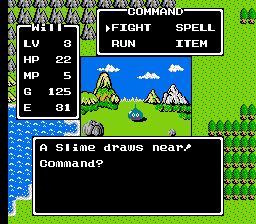The prevalence of IT in modern life has had a transformative effect on human interaction in an unfathomable number of ways. It has eliminated some forms of communication almost entirely while giving birth to others. We are now able to interact with other people thousands of miles away without ever leaving our doorsteps. This has led to a speculation that we are now living a “post-geographic” existence in which our actual locations have become irrelevant due to the possibilities afforded by new IT – a new global era. There has been much research done on this topic, with some writers such as Frances Cairncross, author of “The Death of Distance”, being of the belief that the effect of this trend on how we work, play, and live will be absolutely revolutionary. Others, such as geographer Mei-Po Kwan, acknowledge that while IT is definitely having a considerable impact on how we live our lives, the result will not be in a complete elimination of our daily patterns of travel, but rather a restructuring thereof. For my final project, I intend to use questionnaire data to create maps illustrating the effects of ‘living post-geographically’ as it plays out in regards to our scope of daily interaction via the internet and other forms of technology vs. our scope of daily travel. My presumption is that for most of us, the range of people we interact with on a day to day basis via phone, email, social networking, etc. may span many countries and continents, while the extent of our travel over the same period of time may only span a few square miles. I also hope to address one of the criticisms of the “death of distance” theory – that it addresses only those of us lucky to have access to IT. Such theories have no bearing whatsoever for the billions who have no access to IT in their daily lives – the majority of the earth’s population. Data from such individuals in my project will be difficult to obtain due to the obvious aforementioned reasons, but I feel as though having even one or two examples will illustrate my point. One of the exciting aspects of this project is that based on how the questionnaire is structured, it can allow for further exploration into a variety of directions, such as analysis of the data based on location of the participant, their modes of communication, time of day, etc. At this point, I am using Python and the Google Maps API to create maps for each individual, with the intended modes of dissemination being through a website and an interactive display in a gallery space. Due to fascinating and incredibly pertinent subject and the variety of ways in which the project can be expanded upon, I definitely intend to pursue it beyond this semester and possibly as a springboard for my thesis.
http://a.parsons.edu/~dasga383/week2.ppt
Sunday, November 23, 2008
Monday, November 10, 2008
A slime draws near!
And this is why I purposely don't stay current with computer games:
If playing the original Fallout can keep me up until 4am (when I have class at 9am), I don't even want to think about what Fallout 3 would do to my sleeping schedule. Likewise, if playing the Realm (one of the first MMORPG's ever) could become as dangerously addictive for me in 2005 while still looking like this:
_screenshot.jpg)
then I have no business ever going anywhere near anything as pretty as this (Age of Conan):

But either way, I definitely need to see if I can find a Dragonwarrior emulator for my iPhone.

If playing the original Fallout can keep me up until 4am (when I have class at 9am), I don't even want to think about what Fallout 3 would do to my sleeping schedule. Likewise, if playing the Realm (one of the first MMORPG's ever) could become as dangerously addictive for me in 2005 while still looking like this:
_screenshot.jpg)
then I have no business ever going anywhere near anything as pretty as this (Age of Conan):

But either way, I definitely need to see if I can find a Dragonwarrior emulator for my iPhone.

Tuesday, November 4, 2008
Beautiful Soup is a cruel mistress
So I came upon a much-lauded Python HTML/XML parser named Beautiful Soup that is "designed for quick turnaround projects like screen-scraping". Perfect for my project, right? Probably, except that I'm a complete novice at Python and am having extreme difficulty wading through the documentation about the module, despite how extensive and detailed it is. Ironically, the interweb is a very small place and it just so happens that the creator of Beautiful Soup is my friend Sumana's husband, so if need be I suppose I could make a personal plea for help (albeit at the risk of revealing my total ignorance and losing their respect forever).
Behold, the result of hours of trying to fiddle with Beautiful Soup:
import urllib2
from BeautifulSoup import BeautifulSoup
page = urllib2.urlopen("http://icasualties.org/oif/USDeaths.aspx")
soup = BeautifulSoup(page)
for para in soup('p'):
print para
print
D'oh.
Behold, the result of hours of trying to fiddle with Beautiful Soup:
import urllib2
from BeautifulSoup import BeautifulSoup
page = urllib2.urlopen("http://icasualties.org/oif/USDeaths.aspx")
soup = BeautifulSoup(page)
for para in soup('p'):
print para
D'oh.
rupa !<3 drupal
On top of not liking Macs, New York, Pinkberry, skinny jeans, or Bob Dylan, I've also decided that I don't like Drupal. Actually it's not that I don't like it - had I the time, I'd love to figure it out because from what I hear (hi Clay!) it's incredibly powerful, customizable, and resilient. Maybe one of these days I'll get a chance to sit down and take the plunge but I doubt it'll be anytime soon. Soon, Drupal. Our names are too similar for me to write you off.
Bob Dylan, on the other hand, can shove it.
Bob Dylan, on the other hand, can shove it.
Subscribe to:
Comments (Atom)
